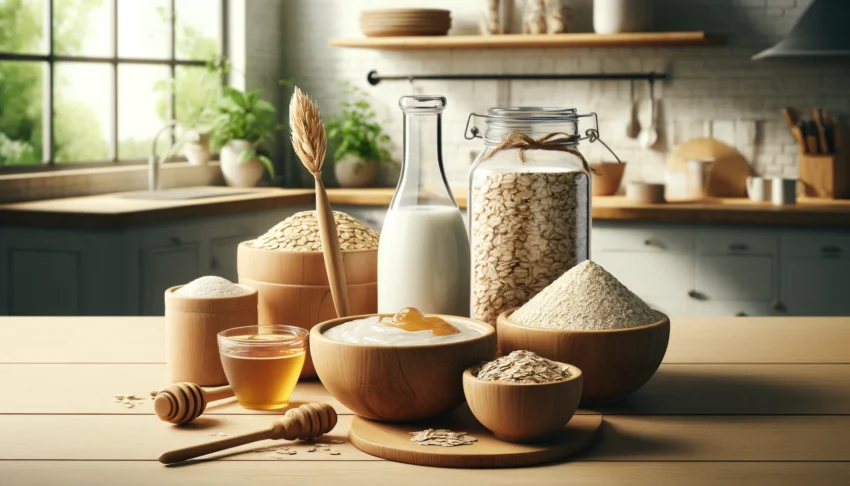Oats are a humble grain yet powerhouse of nutrition, making them a staple in many diets worldwide. Known scientifically as Avena sativa, oats come packed with benefits that can enhance overall health, influence gut health, and even modulate the immune system. However, there are complexities to consider, such as the presence of phytic acid, which affects nutrient absorption directly from oats. This blog post delves into the various facets of oats, from their impact on the body to the specific ways they contribute to and interact with our nutrition.
Nutritional Value of Oats
Oats are renowned for their nutritional richness. They are a great source of carbohydrates and fiber, particularly beta-glucan, a type of soluble fiber that has been linked to lowering cholesterol levels and stabilizing blood glucose levels. Oats are also a good source of protein compared to other grains, providing a balanced spectrum of essential amino acids.
Minerals are another critical component, with oats offering significant amounts of magnesium, zinc, phosphorus, and manganese. Furthermore, oats contain a variety of vitamins such as B vitamins (particularly folate and thiamine) which play vital roles in energy metabolism and the nervous system.
Effects on the Body and Immune System
Gut Health
Oats have a profound impact on gut health primarily through their high fiber content. The soluble fiber, beta-glucan, aids in digestive health by forming a gel-like substance in the gut, which can help to regulate bowel movements and prevent constipation. This fiber also serves as a prebiotic, feeding the good bacteria in the intestine, which is essential for maintaining a balanced gut microbiota. A healthy gut microbiota is crucial not only for digestion but also for a robust immune system, as a significant portion of the immune system is located in the gut.
Immune System Enhancement
The immune-boosting properties of oats can be attributed to several factors. First, the beta-glucan found in oats may enhance the immune system’s response to bacterial infection. It does this by activating white blood cells (macrophages and neutrophils) that fight pathogens. The presence of essential minerals and vitamins also contributes to the normal function of the immune system, ensuring the body has the resources to mount and sustain immune responses.
Oats and Phytic Acid: A Nutritional Paradox
While oats are nutrient-dense, they also contain phytic acid, an organic substance that binds to minerals in the digestive tract and can reduce their absorption. Phytic acid is often considered an “anti-nutrient” due to its capability to chelate minerals like iron, zinc, and calcium, making them less available to the body. This has led to some concerns about the impact of oats on mineral status, particularly in diets where whole grains are a major mineral source.
Impact on Nutrient Absorption from Oats
The effect of phytic acid is primarily on the minerals within the oats themselves rather than the broader diet. This means while phytic acid can inhibit the absorption of iron, zinc, and calcium from the oats you eat, it does not generally affect the absorption of these minerals from other foods eaten at different times. For instance, phytic acid in oats might reduce the percentage of iron absorbed from a bowl of oatmeal but will not affect the iron absorption from a steak eaten at a different meal.
Mitigating the Effects of Phytic Acid
The impact of phytic acid can be mitigated through various food preparation techniques such as soaking, sprouting, and fermenting. These processes can reduce the phytic acid content in oats, enhancing the bioavailability of minerals. For example, soaking oats overnight can activate phytase, an enzyme that breaks down phytic acid, thereby reducing its concentration and lessening its binding effect on minerals.
Oats offer a multitude of health benefits, from improving gut health and boosting the immune system to providing a rich source of nutrients. While the presence of phytic acid in oats does pose a challenge in terms of mineral absorption within the grain, this can be managed through simple culinary practices. The overall benefits of including oats in your diet far outweigh the potential drawbacks posed by phytic acid, especially when consumed as part of a balanced diet.
Incorporating oats into your daily routine can be as simple as starting your day with a bowl of oatmeal, adding them to smoothies, or using them in baking. With their versatility and health benefits, oats are truly a superfood that can play a vital role in maintaining and enhancing overall health.

